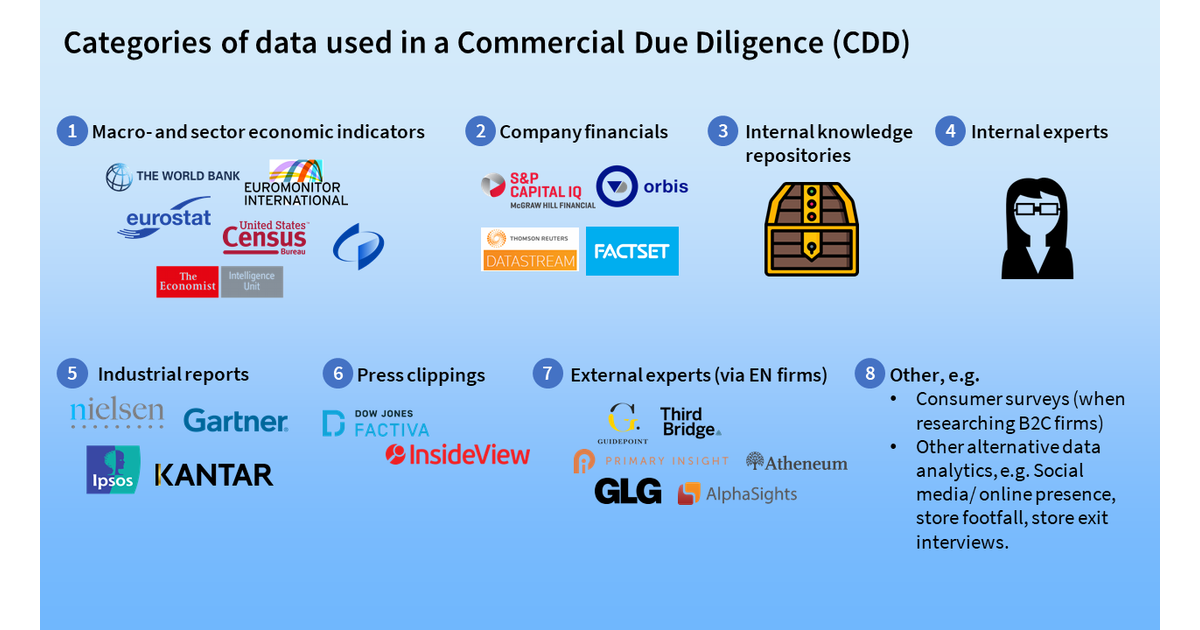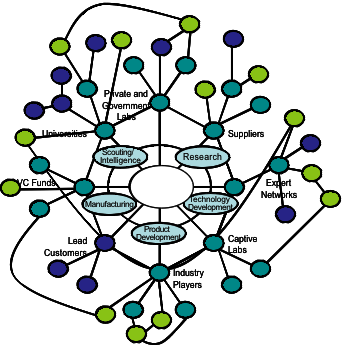How Are Expert Networks Used In Legal Cases?
Do you ever wonder how legal cases get resolved? Well, let me tell you about a fascinating tool called expert networks that play a crucial role in the legal world! These networks are like a group of highly knowledgeable individuals who provide specialized insights and advice to lawyers. Intrigued? Keep reading to discover how expert networks are used in legal cases!
Imagine you’re a lawyer working on a complex case. You might need expertise from professionals in various fields, like medicine, finance, or technology, to strengthen your arguments. Expert networks connect lawyers with these experts, providing access to their knowledge and experience. It’s like having a team of experts at your fingertips!
Expert networks help lawyers in several ways. They can connect you with an expert who can analyze complicated medical records or explain financial transactions. These specialists can review documents, provide opinions, and even testify in court if needed. With expert networks, you can tap into a vast pool of expertise that can significantly impact the outcome of a case.
So, whether it’s understanding technical jargon, deciphering medical reports, or diving into complex financial documents, expert networks play a crucial role in legal cases. They provide invaluable assistance to lawyers, helping them build strong, evidence-based arguments. Ready to explore further? Let’s dive deeper into how expert networks function and how lawyers utilize their services in legal cases!

How Are Expert Networks Used in Legal Cases?
Expert networks play a crucial role in the legal field, providing attorneys and legal teams with access to specialized knowledge and insights. These networks connect legal professionals with subject matter experts across various industries who can provide expert testimony, consultation, and guidance on complex legal matters. In this article, we will explore the different ways in which expert networks are used in legal cases, highlighting their benefits, tips for effective utilization, and potential challenges.
1) Obtaining Expert Witnesses for Testimony and Consultation
One of the primary uses of expert networks in legal cases is to find and engage expert witnesses. Expert witnesses are individuals with specialized knowledge, skills, and expertise relevant to the legal case at hand. These experts can provide testimony in court and offer valuable insights and analysis to support a legal argument. Through expert networks, legal teams can connect with experts in various fields such as medicine, finance, technology, or forensics, depending on the nature of the case.
Expert witnesses obtained through expert networks can also provide consultation prior to trial, helping the legal team understand technical aspects, complex data, or industry-specific practices. Their expertise can assist lawyers in building stronger cases, identifying potential strengths and weaknesses, and formulating effective legal strategies.
It is essential for legal professionals to thoroughly vet potential expert witnesses, ensuring their qualifications, credibility, and alignment with the case. Expert networks streamline this process by verifying the expertise and background of the professionals in their network, allowing attorneys to access a pool of qualified experts.
2) Conducting Industry-Specific Research and Analysis
Expert networks act as valuable resources for conducting industry-specific research and analysis in legal cases. In complex litigation, understanding the intricacies of a specific industry is crucial for effectively arguing a case or negotiating settlements. Expert networks provide access to professionals who have a deep understanding of industry trends, regulations, and practices.
Through these networks, legal teams can consult experts who can help them comprehend intricate technical information, decipher complex financial data, or analyze scientific research. This enables attorneys to build stronger arguments, uncover valuable evidence, and present a compelling case to the court or opposing parties.
Expert networks also help bridge the knowledge gap between attorneys and specialized industries, allowing legal professionals to quickly gain an in-depth understanding of unfamiliar subject matters. This saves time and resources that would otherwise be spent on extensive research, enabling legal teams to focus on crafting effective legal strategies.
3) Providing Insights for Case Evaluation and Strategy Development
Expert networks are instrumental in the evaluation of legal cases and the development of sound legal strategies. By connecting with experts who have extensive experience in relevant fields, legal teams can gain valuable insights into the strengths, weaknesses, and potential outcomes of their cases.
During case evaluation, expert networks enable attorneys to discuss the merits and challenges of their cases with professionals who can provide objective opinions and recommendations. These insights help lawyers assess the viability of their arguments, identify potential pitfalls, and determine the best course of action.
Expert networks also assist in strategy development by helping attorneys understand the opposing party’s arguments, anticipate counterarguments, and craft effective responses. By consulting subject matter experts, legal professionals can ensure that their strategies are based on accurate information, solid reasoning, and industry knowledge.
Benefits of Utilizing Expert Networks in Legal Cases
When it comes to legal cases, the utilization of expert networks offers several significant advantages:
1) Access to Specialized Knowledge and Expertise
Expert networks connect legal professionals with subject matter experts in various fields, allowing them to tap into specialized knowledge and expertise. Attorneys can leverage this access to gain insights that are crucial for building strong cases, understanding complex industries, and effectively arguing their points in court.
2) Time and Resource Savings
By utilizing expert networks, legal teams can save valuable time and resources. Instead of spending extensive hours on research and analysis, attorneys can consult experts who already possess the necessary knowledge and insights. This enables them to focus on other essential tasks related to case preparation and strategy development.
3) Enhanced Credibility and Persuasiveness
When expert witnesses testify in court, their opinions and insights carry significant weight. By utilizing expert networks to find reputable and credible experts, legal professionals can enhance the credibility and persuasiveness of their arguments. This can ultimately strengthen their cases and increase the likelihood of a favorable outcome for their clients.
4) Mitigation of Risks and Challenges
Legal cases often involve complex technical or scientific details that may be challenging for attorneys to fully comprehend. Expert networks mitigate this risk by connecting legal teams with experts who can explain and simplify complex concepts. This ensures that attorneys are well-equipped to address any challenges that may arise during the legal proceedings.
5) Increase in Case Success Rate
Utilizing expert networks can significantly increase the success rate of legal cases. By leveraging the knowledge and expertise of industry professionals, legal teams can build stronger arguments, identify critical evidence, and make well-informed decisions. This can ultimately tip the scales in favor of their clients.
Tips for Effective Utilization of Expert Networks in Legal Cases
While expert networks offer valuable resources for legal professionals, effective utilization is key to maximizing their benefits. Here are some useful tips:
1) Clearly Define Your Case Needs
Prior to utilizing an expert network, clearly outline your case needs, including the specific expertise required. This will help you narrow down your search and find experts who are well-aligned with your case requirements.
2) Thoroughly Vet Potential Experts
Ensure that you thoroughly vet potential expert witnesses or consultants. Verify their credentials, professional experience, and past performance. Seek recommendations or referrals from trusted sources within your professional network.
3) Establish Effective Communication Channels
Establish clear lines of communication with the experts you engage through the network. Clearly communicate your expectations, timelines, and deliverables. This will facilitate effective collaboration throughout the legal process.
4) Leverage Industry-Specific Benchmarks and Data
Tap into the wealth of industry-specific benchmarks, data, and research that experts in the network can provide. This will enhance the strength and persuasiveness of your arguments, ensuring you have access to the most up-to-date and relevant information.
5) Maintain Professional Relationships
Build and maintain professional relationships with experts in the network. Cultivate relationships based on trust and mutual respect, as these experts can become valuable resources for future legal cases.
6) Adapt to Changing Circumstances
Be flexible and adaptable in your approach to utilizing expert networks. Legal cases can evolve and change, requiring different areas of expertise as the proceedings unfold. Continuously assess the needs of your case and adjust your expert engagement accordingly.
7) Utilize Multiple Experts for Comprehensive Analysis
Consider engaging multiple experts from different fields to provide comprehensive analysis and insights. Collaboration among experts representing various perspectives can greatly enhance your understanding of complex issues and strengthen your legal arguments.
Conclusion
Expert networks serve as valuable resources for legal professionals, facilitating access to specialized knowledge, insights, and industry expertise. They play a crucial role in obtaining expert witnesses, conducting industry-specific research, and strategizing legal cases. By effectively utilizing expert networks and following the tips mentioned, legal teams can enhance the strength of their arguments, save time and resources, and increase their chances of success in legal proceedings.
Key Takeaways: How are expert networks used in legal cases?
- Expert networks provide legal professionals with access to specialized knowledge and expertise from various fields.
- Lawyers use expert networks to find and consult with professionals who can provide expert opinions and insights in specific areas of the law.
- Expert networks help lawyers gather evidence, validate claims, and build a strong case by connecting them with relevant experts.
- These networks enable lawyers to stay updated with the latest developments and trends in their respective legal fields.
- By leveraging expert networks, legal professionals can enhance their understanding of complex issues and increase their chances of success in court.
Frequently Asked Questions
Expert networks play a crucial role in legal cases by providing specialized knowledge and insights. Here are some frequently asked questions about how they are used:
1. How can expert networks assist in gathering evidence for legal cases?
Expert networks have a vast network of professionals from various fields who can provide vital insights and information related to specific legal cases. They are often consulted to gather evidence, conduct research, and provide expert opinions. These networks connect lawyers with experts who can offer valuable guidance and help build strong arguments to support their cases. By leveraging the expertise of these professionals, legal teams can enhance their understanding of complex subjects and strengthen their overall case strategy.
For example, in a medical malpractice case, an expert network can connect a lawyer with medical professionals who possess the knowledge and experience to analyze medical records, evaluate treatment protocols, and provide their expert opinions. This evidence can be instrumental in proving negligence or establishing causation, helping the legal team present a compelling case in court.
2. How do expert networks ensure the credibility and reliability of their experts?
Expert networks have rigorous vetting processes to ensure the credibility and reliability of their experts. They evaluate potential experts based on their qualifications, experience, publications, and reputation within their respective fields. This thorough screening process helps expert networks select the most qualified professionals who can provide unbiased and accurate information.
Additionally, expert networks often maintain ongoing relationships with their experts, monitoring their performance and ensuring they uphold the highest standards of professionalism. Feedback from clients is also taken into account, allowing the network to continuously assess the quality and reliability of their experts. This commitment to maintaining a reliable network of experts ensures that legal teams can trust the information and insights provided by these professionals when making critical decisions in their cases.
3. Can expert networks help with expert witness selection for trials?
Yes, expert networks can assist legal teams in expert witness selection for trials. These networks have access to a wide range of experts across various disciplines who have experience testifying in court. They can provide recommendations based on the specific requirements and complexities of a case.
Expert network professionals can help lawyers identify experts who are not only knowledgeable in their field but also possess excellent communication skills to effectively present their expertise to a jury. By leveraging the resources and connections provided by expert networks, legal teams can find the right experts to support their case and increase their chances of success in the courtroom.
4. How do expert networks maintain confidentiality in legal cases?
Confidentiality is a top priority for expert networks when dealing with legal cases. These networks have strict policies and procedures in place to protect sensitive information shared between lawyers and experts. Non-disclosure agreements (NDAs) are often signed to ensure that all parties involved maintain the confidentiality of the case details.
Furthermore, expert networks often have secure systems and encrypted communication channels to safeguard the exchange of information. They also educate their experts about the importance of confidentiality and ensure they adhere to professional ethical standards. These measures help maintain the integrity of the legal process and build trust between legal teams and expert networks.
5. Can expert networks help in navigating complex regulations and legal standards?
Absolutely. Expert networks have professionals who specialize in various legal fields and have in-depth knowledge of complex regulations and legal standards. When faced with intricate legal issues or unfamiliar territory, lawyers can consult with these experts to gain clarity and understanding.
Whether it involves interpreting intricate laws, understanding industry-specific regulations, or navigating the complexities of compliance frameworks, expert networks can connect legal teams with experts who possess the necessary expertise. With their insights and guidance, lawyers can make well-informed decisions and effectively address the legal complexities surrounding their cases.
EXPERT NETWORK
Summary
When it comes to legal cases, expert networks are a helpful tool. They connect lawyers with knowledgeable specialists who can provide advice and insights. Expert networks can save time and money by providing access to experts who can assist with complex issues. However, it is important to carefully evaluate the credibility and qualifications of these experts to ensure their opinions are reliable and unbiased. Additionally, expert networks should be used ethically and transparently to maintain the integrity of the legal process.


